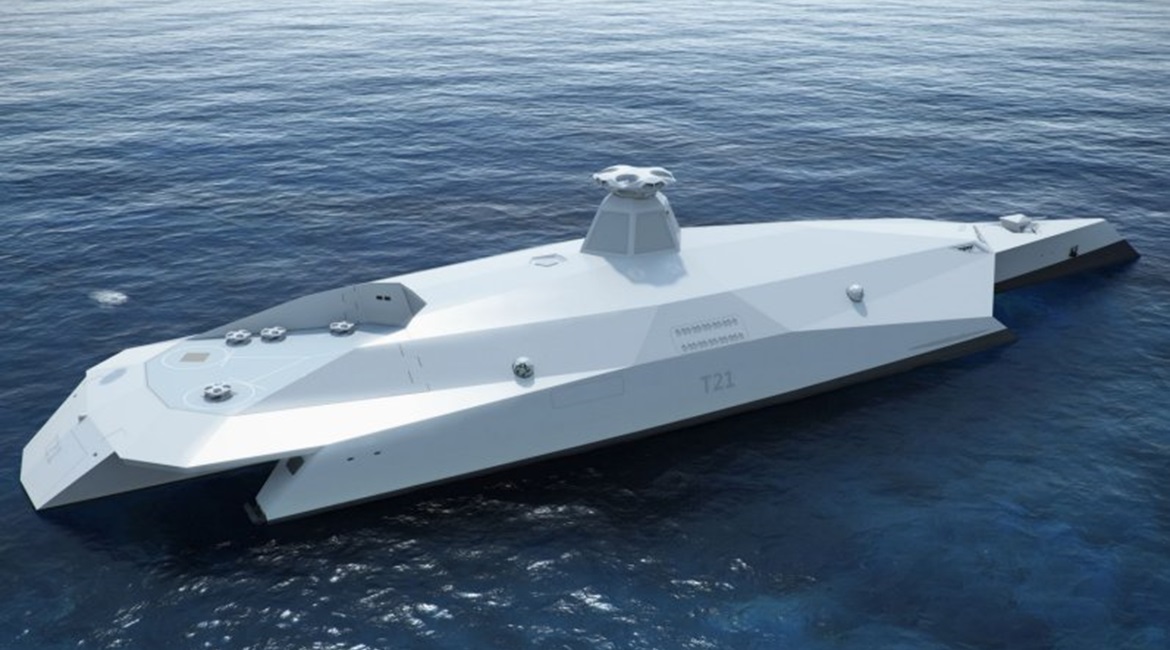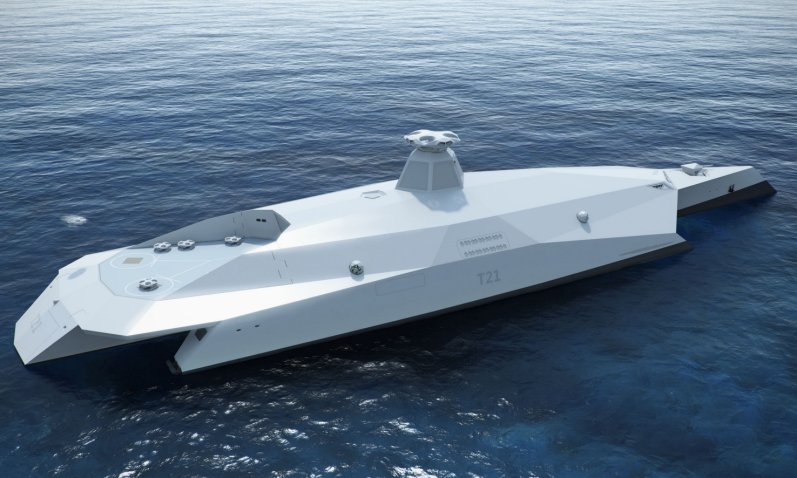
The UK Ministry of Defence (MoD) is soliciting proposals for novel concepts aimed at integrating ‘intelligent systems’ into future warships.

A CGI rendering of the Dreadnought 2050 concept warship produced under MoD sponsorship in 2013. The Intelligent Warship competition is aimed at identifying and maturing technologies – automation, autonomous functions, AI-enabled decision aids, and alternative human-machine interfaces – for warships in the post-2040 time frame. (MoD)
Being competed through the MoD’s Defence and Security Accelerator (DASA) programme, the Intelligent Ship programme is seeking to mature innovative technologies and techniques applicable to ship classes in the 2040+ timescale. A budget of GBP1 million (USD1.3 million) is available to fund multiple Phase 1 proposals, with an additional GBP3 million potentially available to fund follow-on phases.
Released on 12 June, the Intelligent Ship competition document has set out to de-risk and evaluate technologies and approaches that could enable alternative, revolutionary future fleet concepts that can maintain or enhance UK military advantage. “This aim is based on a future vision where elements of automation, autonomy, machine learning and artificial intelligence [AI] are closely integrated and teamed with human decision makers,” said the MoD. It added, “It is expected that this will ensure timely, more informed and trusted decision making and planning, within complex, cluttered, contested and congested operating and data environments.”
Phase 1 proposals are sought to improve automation, autonomous functions, AI-enabled decision aids, or alternative human-machine interfaces, and how they could improve speed and/or quality of decision-making and mission planning in a future operating environment. Proposals may also aim to demonstrate innovative system and platform design options that could enable the exploitation of intelligent systems in alternative platform concepts.
Looking to read the full article?
Gain unlimited access to Janes news and more...






